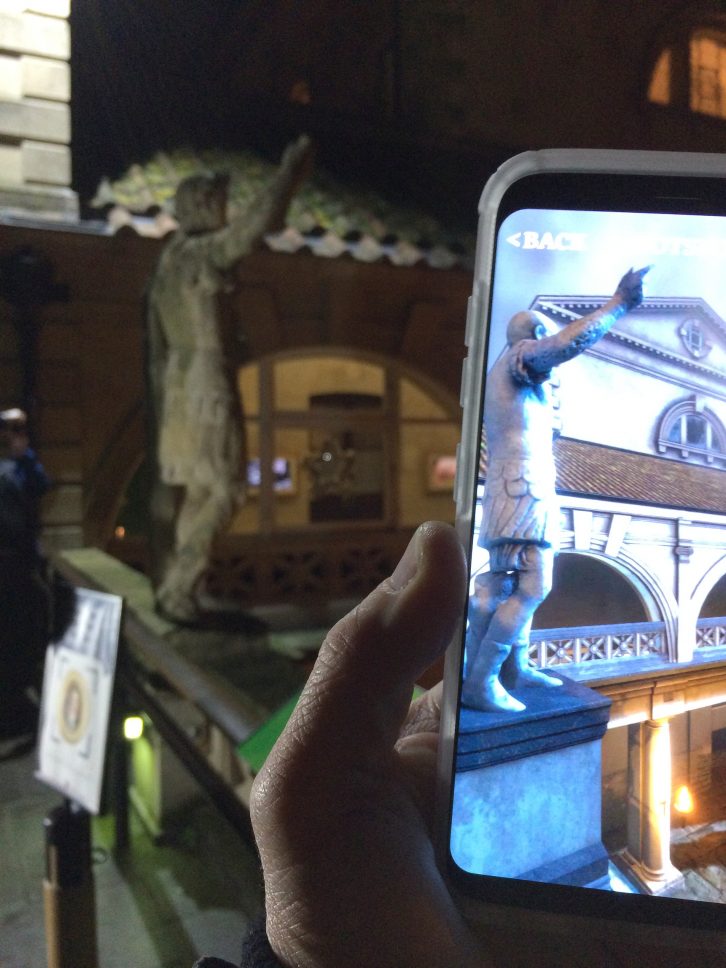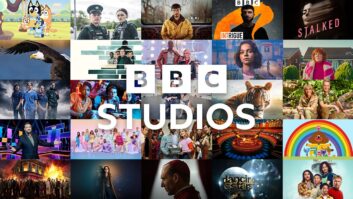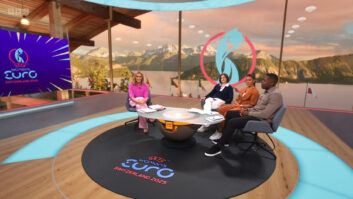The BBC has completed its second public 5G Smart Tourism trial, testing low-latency, high-bandwidth video on smartphones.
The application, based on the concept of the phone acting as a ‘window in time’, superimposes a historical reconstruction upon a real-world location using remote rendering VR graphics.
This real-time rendering gives the user complete freedom to move around the physical environment and ‘zoom’ their viewpoint without loss of image quality.

The University of Bristol provided a 60 GHz, 5G mesh network between the Roman Baths trial location and the physical server cluster located at Bristol University, which performed the VR graphics drawing.
Bristol provisioned 10 virtual graphics-drawing PCs using OpenStack and optimised them to allow fast access to physical memory and graphics hardware. During the trial, a user’s smartphone would request graphics-drawing capability from Bristol’s servers and be assigned IP endpoints for sending the control data and receiving the drawn video.
Round-trip latency from a handset being moved to a video frame corresponding to that movement being displayed was approximately 200 milliseconds, deemed satisfactory according to user feedback for handheld applications. However this would need to be below 50 milliseconds for a VR headset.
You can read more about the BBC’s 5G Smart Tourism trial in the latest issue of TVBEurope.







